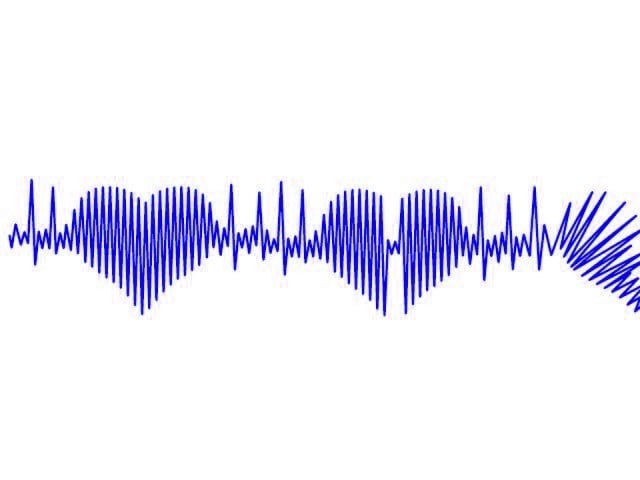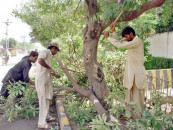Medical breakthrough: AKU to make gloves to check blood pressure, ECG
The project is part of Grand Challenges Canada grants competition.

"The device will be linked to a cellphone and the data may be transferred to a physician, if required," Dr Ayeesha Kamran Kamal, AKU’s associate professor and stroke neurologist. PHOTO: FILE
The researchers hope that by monitoring these vitals, people will be able to reduce high blood pressure, prevent diabetes, and decrease high cholesterol levels that, in turn, can prevent chances of stroke by 80 per cent. This research project to prepare the device is part of the Grand Challenges Canada grants competition, which is funded by the government of Canada and supports bold ideas with big impact on global health. Of the 83 grants announced, 50 grants have been given to innovators in 15 low- and middle-income nations worldwide, including Pakistan, India and Bangladesh.

“The detection of stroke risks means repeated doctor’s visits, and measurements, and it requires tests, technical support staff and a doctor,” pointed out Dr Ayeesha Kamran Kamal, AKU’s associate professor and stroke neurologist. “Through this device, we hope to simplify it to a single interaction and bypass complexity and access.” Dr Kamal is also the lead researcher of a cross-disciplinary team with biomedical engineers, nurses, physicians and e-health personnel.
The device will consist of a leather glove having photodiodes, capable of converting light into current or voltage, blood pressure and electrocardiography sensors integrated with a central circuit. The measurements will be readable by patients in the form of colour codes that will tell them whether they are at low, high or moderate risk regardless of numeracy and literacy skills.
“It will be linked to a cellphone and the data may be transferred to a physician, if required,” she explained. “The cellphone can provide audio feedback, as well. This will be aligned to the latest guidelines and also be translated to adapt easily to local languages.”
At the Grand Challenges Canada grants competition, the portfolio of 83 creative, out-of-the-box ideas, selected through independent peer review from 451 applications, includes projects submitted by social entrepreneurs, private sector companies and non-government organisations, as well as, university researchers. Pakistan received two grants. The second one has been awarded to the University of Agriculture, Faisalabad, for a project on removing arsenic from drinking water using solid waste from agriculture or the food industry as low-cost sorbents.
Published in The Express Tribune, November 22nd, 2013.



















COMMENTS
Comments are moderated and generally will be posted if they are on-topic and not abusive.
For more information, please see our Comments FAQ